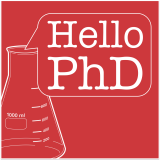Earning a PhD opens doors to a wide range of career opportunities across academia, industry, government, and beyond. While many students begin their PhD programs with specific career goals, research shows that career interests often evolve during their training (Brown et al., 2023). Therefore, exploring career options and remaining flexible to opportunities is important. By embracing career exploration and self-assessment, students can identify their best career options and make informed decisions about their next steps after graduation.

The Many Career Options for PhD Graduates
PhD graduates today find themselves in diverse roles, with opportunities extending beyond traditional academia. Career paths include:
- Academia: Research-intensive faculty positions, teaching-focused roles, or administrative leadership.
- Industry: Roles in biotechnology, data science, or consulting, often in research or management positions.
- Government and Nonprofit Organizations: Research or policy roles in agencies such as the NIH (National Institutes of Health) and FDA (Food and Drug Administration), and others.
- Additional Careers: Science communication, medical writing, marketing, patent law, or entrepreneurship.
During their training, PhD students develop highly transferable skills—critical thinking, project management, data analysis, communication, and problem-solving—that are highly valued across sectors (Sinche et al., 2017). Recognizing the value of these skills can expand career options for graduates.
Career Goals Often Change During PhD Training
Research indicates that more than half of PhD students adjust their long-term career goals during their training. For example, a study of 1,452 biomedical PhD graduates from Vanderbilt University found that 56% of students changed their primary career goal between enrolling and graduation (Brown et al., 2023). Notably, there was a 19% net decrease in interest in research-intensive faculty careers during training.
These shifts are influenced by external factors such as funding challenges, job availability, and academic competitiveness, as well as internal factors, including evolving personal interests, exposure to alternative careers, and changes in values or priorities. Consequently, it is critical for students to reassess their goals periodically throughout their programs.
Trends in Career Shifts from Academia to Industry
Over the past two decades, PhD graduates have increasingly pursued roles in industry and other non-academic sectors. Data from the National Center for Science and Engineering Statistics (NCSES, 2023) highlights that the proportion of biological and biomedical sciences graduates entering academic roles declined from approximately 40% in 2002 to 20% in 2022. Conversely, commitments to industry roles rose from approximately 39% in 2002 to 68% in 2022 for this same group of students.
A 2023 report from the American Association of University Professors (AAUP) provides additional insights. Data from AAUP suggests that the availability of tenure-track positions has decreased over time. In 2021, only 24% of faculty members in U.S. colleges and universities held full-time tenured positions, compared to 39% in 1987. Additionally, from 2002 to 2021, graduate student employees increased by 44%, while full-time and part-time faculty increased by only 19%.
Participation in postdoctoral training is also decreasing. Between 2002 and 2020, the rate of pursuing postdoctoral training decreased by approximately 15% (NCSES, 2023). In 2019, fewer than 60% of PhD graduates pursued postdoctoral training, reflecting the growing trend of entering the workforce directly after graduation (Brown et al., 2023).
The Role of Postdoctoral Training
The study by Brown et al. (2023) revealed that the first non-training position after graduation often predicts long-term career trajectory. For those pursuing academic roles, postdoctoral training may be a critical next step. However, for careers outside academia, postdoctoral training might delay workforce entry. Instead, building career-specific skills during PhD training can better position students for non-academic roles (Sinche et al., 2017).
Strategies for Career Planning During Your PhD
To maximize the benefits of your PhD experience, consider the following strategies:
1. Clarify Your Goals Early:
Reflect on your interests and strengths. Recognize that goals may change, and conduct regular check-ins to adjust your path as needed.
2. Explore Career Options
Utilize career exploration resources such as:
- Workshops, panels, and networking events.
- Informational interviews with professionals in fields of interest.
- Internships or shadowing opportunities for firsthand experience.
- “Mini-experiments,” such as consulting projects, teaching, or entrepreneurial activities (Huang, 2020).
3. Leverage Your Resources
Many institutions offer career development support, including:
- Career mentoring programs.
- Resources like the Student Resource Center or past episodes of the Hello PhD Podcast, which provides insights on navigating career options.
- Graduate career services offices for personalized coaching.
4. Develop and Highlight Transferable Skills
Emphasize skills like project management, teamwork, and data analysis on your resume and in networking efforts to demonstrate their relevance to target roles.
5. Plan Strategically for Your Next Step
Determining whether a postdoc aligns with your career goals can help you decide whether to pursue it or transition directly to the workforce.
Explore our Student Resource Center

Explore our Student Resource Center for a wealth of tools to help students succeed during their graduate school journey. From career development resources to technical support and tips for managing life in the lab, the Student Resource Center is designed to empower the next generation of scientists. Explore to discover strategies, insights, and inspiration tailored for students in science.
Inspiration for This Blog Post
This blog was inspired by our conversations with Hello PhD podcast hosts Joshua Hall and Daniel Arneman at the Society for Neuroscience meeting in 2023. Their podcast is a must-listen for anyone in graduate school or considering it, tackling unique challenges such as mental health, lab culture, career planning, and research struggles. Episodes blend serious discussions on science and academia with casual, engaging segments, making it a supportive resource for navigating graduate school.
Citations
- American Association of University Professors. (2023) AAUP data snapshot: Annual report on the economic status of the profession, 2021–22. This can be viewed online at: https://www.aaup.org/sites/default/files/AAUP%20Data%20Snapshot.pdf.
- Brown, A.M., et al. (2023) From goal to outcome: Analyzing the progression of biomedical sciences PhD careers in a longitudinal study using an expanded taxonomy. FASEB BioAdvances 5, 427–452. https://doi.org/10.1096/fba.2023-00072.
- Huang, K.-L. (2020) Ten simple rules for landing on the right job after your PhD or postdoc. PLOS Computational Biology 16(4), e1007723. https://doi.org/10.1371/journal.pcbi.1007723.
- National Center for Science and Engineering Statistics (NCSES). (2023) Doctorate Recipients from U.S. Universities: 2022. NSF 24-300. Alexandria, VA: National Science Foundation. Available at: https://ncses.nsf.gov/pubs/nsf24300.
- Sinche, M., Layton, R.L., Brandt, P.D., O’Connell, A.B., Hall, J.D., Freeman, A.M., Harrell, J.R., Cook, J.G., & Brennwald, P.J. (2017) An evidence-based evaluation of transferable skills and job satisfaction for science PhDs. PLOS ONE 12(9), e0185023. https://doi.org/10.1371/journal.pone.0185023.

